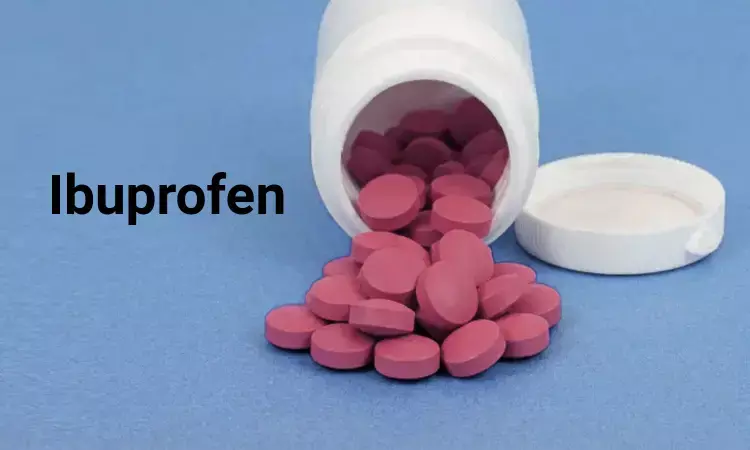- Home
- Medical news & Guidelines
- Anesthesiology
- Cardiology and CTVS
- Critical Care
- Dentistry
- Dermatology
- Diabetes and Endocrinology
- ENT
- Gastroenterology
- Medicine
- Nephrology
- Neurology
- Obstretics-Gynaecology
- Oncology
- Ophthalmology
- Orthopaedics
- Pediatrics-Neonatology
- Psychiatry
- Pulmonology
- Radiology
- Surgery
- Urology
- Laboratory Medicine
- Diet
- Nursing
- Paramedical
- Physiotherapy
- Health news
- Fact Check
- Bone Health Fact Check
- Brain Health Fact Check
- Cancer Related Fact Check
- Child Care Fact Check
- Dental and oral health fact check
- Diabetes and metabolic health fact check
- Diet and Nutrition Fact Check
- Eye and ENT Care Fact Check
- Fitness fact check
- Gut health fact check
- Heart health fact check
- Kidney health fact check
- Medical education fact check
- Men's health fact check
- Respiratory fact check
- Skin and hair care fact check
- Vaccine and Immunization fact check
- Women's health fact check
- AYUSH
- State News
- Andaman and Nicobar Islands
- Andhra Pradesh
- Arunachal Pradesh
- Assam
- Bihar
- Chandigarh
- Chattisgarh
- Dadra and Nagar Haveli
- Daman and Diu
- Delhi
- Goa
- Gujarat
- Haryana
- Himachal Pradesh
- Jammu & Kashmir
- Jharkhand
- Karnataka
- Kerala
- Ladakh
- Lakshadweep
- Madhya Pradesh
- Maharashtra
- Manipur
- Meghalaya
- Mizoram
- Nagaland
- Odisha
- Puducherry
- Punjab
- Rajasthan
- Sikkim
- Tamil Nadu
- Telangana
- Tripura
- Uttar Pradesh
- Uttrakhand
- West Bengal
- Medical Education
- Industry
Ibuprofen and naproxen reduce cardiovascular risk in gout patients, reveals study

A recent research found that the use of non-steroidal anti-inflammatory drugs (NSAIDs) might reduce the risk of cardiovascular events in the patients with gout. The key findings were published in the recent edition of Rheumatology International journal.
Gout is a form of inflammatory arthritis characterized by recurrent attacks of a red, tender, hot and swollen joint. It is typically treated with medications that lower uric acid levels and anti-inflammatory drugs. While NSAIDs such as ibuprofen, naproxen and diclofenac are effective at managing pain and inflammation associated with gout, these have been linked to potential cardiovascular risks due to their prothrombotic, hypertensive and proarrhythmic side effects.
This research was conducted over a span of 23 years from 1997 to 2020 and analyzed data from a total of 59,150 Danish residents who experienced their first gout attack and later suffered a cardiovascular event. This study utilized a case-crossover design and employed the Mantel–Haenszel method to assess the odds ratios and 95% confidence intervals for cardiovascular outcomes related with NSAID use. The results indicated a 12% overall decrease in the odds of experiencing cardiovascular events among the individuals using NSAIDs. Also, the use of ibuprofen and naproxen was linked with reduced odds of a cardiovascular event with odds ratios of 0.92 and 0.85, respectively. Importantly, diclofenac did not show a statistically significant effect with an odds ratio of 0.97.
The research further detailed that the lowered risk was consistent across various types of cardiovascular incidents such as myocardial infarction, ischemic stroke, congestive heart failure, atrial fibrillation/flutter, and cardiovascular death included in the study. This suggests a potentially protective effect of NSAIDs when used in the context of gout treatment.
These findings challenge the existing concerns over the cardiovascular safety of NSAIDs in gout patients and suggest that certain NSAIDs, specially ibuprofen and naproxen, might offer cardiovascular benefits or at least a safer profile when compared to diclofenac. This is particularly relevant given the high prevalence of gout and cardiovascular diseases globally.
The outcomes of this study potentially influence the clinical decisions and public health guidelines regarding the management of gout and the prescription of NSAIDs. Further research is imperative to confirm these findings and explore the mechanisms behind the differential impacts of various NSAIDs on cardiovascular health.
Source:
Bech-Drewes, A., Bonnesen, K., Hauge, E.-M., & Schmidt, M. (2024). Cardiovascular safety of using non-steroidal anti-inflammatory drugs for gout: a Danish nationwide case-crossover study. In Rheumatology International. Springer Science and Business Media LLC. https://doi.org/10.1007/s00296-024-05584-7
Neuroscience Masters graduate
Jacinthlyn Sylvia, a Neuroscience Master's graduate from Chennai has worked extensively in deciphering the neurobiology of cognition and motor control in aging. She also has spread-out exposure to Neurosurgery from her Bachelor’s. She is currently involved in active Neuro-Oncology research. She is an upcoming neuroscientist with a fiery passion for writing. Her news cover at Medical Dialogues feature recent discoveries and updates from the healthcare and biomedical research fields. She can be reached at editorial@medicaldialogues.in
Dr Kamal Kant Kohli-MBBS, DTCD- a chest specialist with more than 30 years of practice and a flair for writing clinical articles, Dr Kamal Kant Kohli joined Medical Dialogues as a Chief Editor of Medical News. Besides writing articles, as an editor, he proofreads and verifies all the medical content published on Medical Dialogues including those coming from journals, studies,medical conferences,guidelines etc. Email: drkohli@medicaldialogues.in. Contact no. 011-43720751


